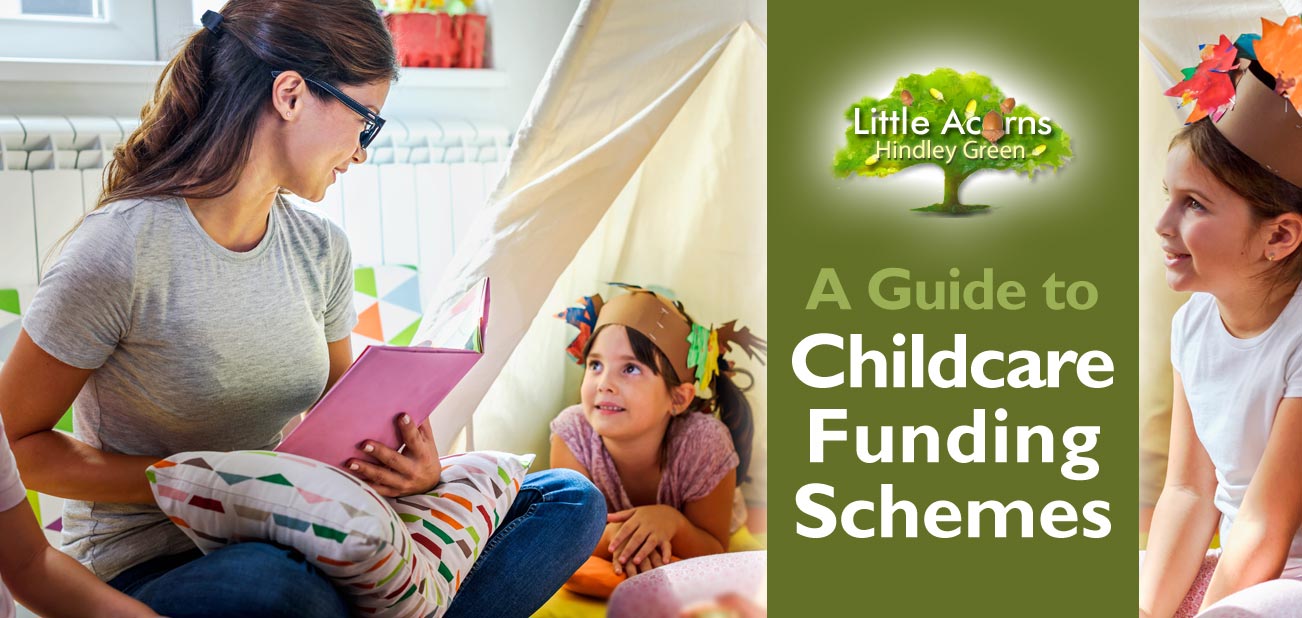
 There are lots of free or assisted funding schemes for childcare and these are especially useful to parents looking to keep childcare costs down. With increased inflation and the cost of living crisis in Britain, such schemes have probably never been more welcome. Today we’ll take a condensed look at the main childcare funding options available to parents, particularly those of children under five, although many schemes also help children substantially older.
There are lots of free or assisted funding schemes for childcare and these are especially useful to parents looking to keep childcare costs down. With increased inflation and the cost of living crisis in Britain, such schemes have probably never been more welcome. Today we’ll take a condensed look at the main childcare funding options available to parents, particularly those of children under five, although many schemes also help children substantially older.
The Key Childcare Funding Schemes Available to Parents
Following are the key schemes that effectively result in free or at least partly-funded childcare for children in England — some also across the entire UK. Let’s take a look …
Childcare Vouchers
 Although the Childcare Vouchers Scheme closed to new applicants on 4th October 2018, childcare vouchers are still available to those who enrolled before the deadline, so long as they continue to meet eligibility requirements. For those that do, childcare vouchers help to cut the cost of childcare for children aged up to 15, or 16 if they are disabled.
Although the Childcare Vouchers Scheme closed to new applicants on 4th October 2018, childcare vouchers are still available to those who enrolled before the deadline, so long as they continue to meet eligibility requirements. For those that do, childcare vouchers help to cut the cost of childcare for children aged up to 15, or 16 if they are disabled.
The scheme is also known as ‘Employer-Supported Childcare’ because, as the name suggests, it is supported by a person’s employer. Childcare vouchers are National Insurance and tax efficient to a degree as they can be administered via a flexible salary sacrifice approach. However, if you’re using the scheme, you should use the Government’s calculator to check whether you’d be better off switching to the Tax-Free Childcare scheme, which we cover next. Note that you cannot continue to claim childcare vouchers once you have switched to the Tax-Free Childcare Scheme, so be sure to use that calculator tool before applying.
Learn more about Childcare Vouchers here.
The Tax-free Childcare Scheme
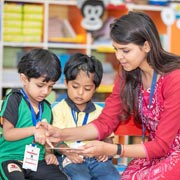 Tax-Free Childcare is a great, UK-wide, scheme that many working families will be eligible for, even including relatively high earners. What’s more, it could save them as much as £2,000 in childcare fees each year, per child, rising to £4,000 if their child has a disability.
Tax-Free Childcare is a great, UK-wide, scheme that many working families will be eligible for, even including relatively high earners. What’s more, it could save them as much as £2,000 in childcare fees each year, per child, rising to £4,000 if their child has a disability.
Roughly speaking, how it works is that, for those that are eligible, the family pays 80% of the childcare fees into a special Childcare Account and the Government chips in the remaining 20%. The registered childcare provider simply draws down the requisite funding from the Childcare Account as and when appropriate. The scheme is rather like a tax rebate but one that’s earmarked specifically for childcare. The resulting saving for UK families could equate to as much as £500 per child every 3 months, or up to twice that every quarter if the child is disabled.
Various rules around eligibility apply, of course. In essence, though, Tax-Free Childcare Funding is available for children up to the age of 11, or 16 if they’re disabled. The child’s parent and their partner, if they have one, can even be earning up to £100k each per annum and still be eligible. Even grandparents or other family members can chip into the Childcare Accounts in order to reduce the burden on parents. So, don’t be one of the million or more families who have not claimed, despite being eligible.
Learn more about the Tax-Free Childcare Scheme here.
15 Hours of Free Childcare for 2-Year-Olds
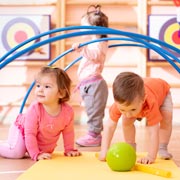 Certain children aged 2 in England* are eligible for 570 hours of totally free childcare per year. This is a great opportunity for them to begin their early years education relatively young and indeed the age of 2 is a crucial age to do so, according to studies. The substantial free funding is usually taken as 15 hours of free childcare over 38 weeks of the year, although some childcare settings allow it to be spread out in a different way. Not all 2-year-olds are eligible, however, and basically it comes down to the fact that the parent(s) must be in receipt of Government benefits of some kind. Other 2-year-olds are eligible for additional reasons, for example because they are looked after by the local authority or are subject to an Education, Health and Care (ECH) Plan. Even some non-UK citizens who do not claim benefits have eligible 2-year-olds although, as with all these scenarios, various rules around eligibility apply.
Certain children aged 2 in England* are eligible for 570 hours of totally free childcare per year. This is a great opportunity for them to begin their early years education relatively young and indeed the age of 2 is a crucial age to do so, according to studies. The substantial free funding is usually taken as 15 hours of free childcare over 38 weeks of the year, although some childcare settings allow it to be spread out in a different way. Not all 2-year-olds are eligible, however, and basically it comes down to the fact that the parent(s) must be in receipt of Government benefits of some kind. Other 2-year-olds are eligible for additional reasons, for example because they are looked after by the local authority or are subject to an Education, Health and Care (ECH) Plan. Even some non-UK citizens who do not claim benefits have eligible 2-year-olds although, as with all these scenarios, various rules around eligibility apply.
Learn more about 15 hours of free childcare for 2-tear-olds here.
15 Hours of Free Childcare for 3 & 4-Year-Olds
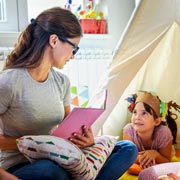 In contrast to the above, 15 hours of free funding is available for all families in England* with a child aged 3 to 4 requiring childcare. As with the above, the children can get 570 hours of free childcare per year except this time only while they’re 3 or 4. This is again usually spread out as 15 hours per week over the course of 38 weeks, however some childcare providers will allow a different pattern. It really is a no-brainer and is a great way to get children into early years education and perhaps parents back into the workplace. Children are eligible to start from the term following their 3rd birthday until they start in Reception Year at school, or reach ‘compulsory school age’ if that’s later.
In contrast to the above, 15 hours of free funding is available for all families in England* with a child aged 3 to 4 requiring childcare. As with the above, the children can get 570 hours of free childcare per year except this time only while they’re 3 or 4. This is again usually spread out as 15 hours per week over the course of 38 weeks, however some childcare providers will allow a different pattern. It really is a no-brainer and is a great way to get children into early years education and perhaps parents back into the workplace. Children are eligible to start from the term following their 3rd birthday until they start in Reception Year at school, or reach ‘compulsory school age’ if that’s later.
Learn more about 15 hours of free childcare for 3 to 4-year-olds here.
30 Hours of Free Childcare for 3 & 4-Year-Olds
 The “30 Hours” childcare scheme for 3 and 4-year-olds is a little harder to obtain because families are not eligible where one partner earns £100k or more. Additionally, the parent and their partner, if they have one, must usually expect to earn at least £152 per week, on average, in order to qualify, although the figures are lower for parents younger than 23. You may still qualify for the free childcare funding if you are on maternity leave, paternity leave, shared leave, adoption leave, or are a carer. Rules apply. As with the Tax-Free Childcare scheme, you have to ensure your details are kept up-to-date every quarter in order to check that you’re still eligible. Your child must usually live with you too, in order to qualify. However, as with all these things, there are some exceptions to the core rules.
The “30 Hours” childcare scheme for 3 and 4-year-olds is a little harder to obtain because families are not eligible where one partner earns £100k or more. Additionally, the parent and their partner, if they have one, must usually expect to earn at least £152 per week, on average, in order to qualify, although the figures are lower for parents younger than 23. You may still qualify for the free childcare funding if you are on maternity leave, paternity leave, shared leave, adoption leave, or are a carer. Rules apply. As with the Tax-Free Childcare scheme, you have to ensure your details are kept up-to-date every quarter in order to check that you’re still eligible. Your child must usually live with you too, in order to qualify. However, as with all these things, there are some exceptions to the core rules.
For those that are eligible, you can claim 30 hours per week of free childcare for your 3/4-year-old for as many as 38 weeks of the year. Some providers, however, allow you to spread out the free hours in a different way, for example less than 30 hours per week spread over more weeks of the year, so long as it doesn’t total more than 1140 hours for the year.
As with the “15 Hours” scheme, this scheme is only for families living in England, although a similar scheme is available in Wales and different schemes are in place in Scotland and Northern Ireland.
Interestingly, if you qualify for the “30 Hours” funding scheme, you can usually claim it at the same time as claiming Tax-Free Childcare (or childcare vouchers) or Universal Credit — if eligible. It really is a great childcare funding scheme for those who fit the required criteria.
Learn more about 30 hours of free childcare for 3 and 4-year-olds here.
Childcare Support for Students
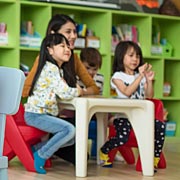 If you are a student as well as being a parent, you may be eligible for some childcare support through a variety of funding schemes.
If you are a student as well as being a parent, you may be eligible for some childcare support through a variety of funding schemes.
- If you are a student studying full-time in higher education, you may be eligible for a Student Childcare Grant if your child is under 15 (under 17 if they have special needs). The grant does not need to be repaid and is in addition to standard student finance. At time of writing for the academic year 2022-23, you can get up to 85% of your childcare costs covered by the grant, up to a maximum of £183.75 per week for one child or £315.03 for two or more. Learn more about Childcare Grants for students here.
- Over-20s who are parents, studying on a further education course (Level 3 or below) and facing financial hardship may be eligible for funding called ‘Learner Support’. Whilst this support is not specifically aimed at those with children, it can be used to fund childcare provision. How much you get and how it’s paid very much depend upon your circumstances, but it’s worth checking to see if you are eligible. Learn more about Learner Support for students here.
- Although students under 20 do not qualify for Learner Support funding, they may qualify for the ‘Care to Learn’ scheme. This can cover childcare costs while they study, although they must be under 20 when they first start the course. They should be the main carer for the child and live in England. For those who qualify, the childcare funding could be worth as much as £160 per child per week for those living outside London, or £175 per child per week for those living in London. Eligibility relies on strict attendance of both the course by the parent and the childcare setting by the child. The course must also be a publicly-funded one at set types of education establishment like schools, sixth forms and various types of college, but not a higher education course at a university. Learn more about the Care to Learn scheme here.
Childcare Funding via Universal Credit
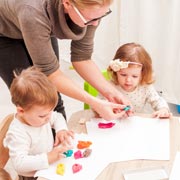 If you and your partner, if you have one, claim Universal Credit, are working and have a child under the age of 17, you may be able to claim back as much as 85% of your childcare costs if eligible. In order to claim, various rules apply and there are even some exceptions to the above. For example, those not working through ill health or disability may still be eligible in some circumstances. You must not, however, be claiming Tax-Free Childcare nor Tax Credits in order to receive childcare funding through Universal Credit.
If you and your partner, if you have one, claim Universal Credit, are working and have a child under the age of 17, you may be able to claim back as much as 85% of your childcare costs if eligible. In order to claim, various rules apply and there are even some exceptions to the above. For example, those not working through ill health or disability may still be eligible in some circumstances. You must not, however, be claiming Tax-Free Childcare nor Tax Credits in order to receive childcare funding through Universal Credit.
The good news is that you can claim back as much as £646.35 per month in childcare costs for one child, or £1108.04 if it’s for more than one (correct at time of writing, October 2022). Exactly how much you get can be affected by how much you earn and how much savings/investments you have, however. Either way, it is a case of claiming it back, though; first you pay for the childcare fees, then apply to have them reimbursed by the Government scheme. It’s important to keep on top of your claims, however, because they can only go back 3 months in time.
Learn more about claiming childcare costs through Universal Credit here.
Tax Credits for Childcare
 Childcare funding through Universal Credit has replaced the Tax Credits system, which closed to new applicants in February 2019. If you are not an existing Tax Credits customer, you will therefore need to claim under the Universal Credit scheme instead. However, for existing families who can still claim Tax Credits, they are able to claim as much as 70% of eligible childcare costs for a child under 16 (17 if disabled) up to a maximum of £122.50 per week for one child or £210 per week for more than one.
Childcare funding through Universal Credit has replaced the Tax Credits system, which closed to new applicants in February 2019. If you are not an existing Tax Credits customer, you will therefore need to claim under the Universal Credit scheme instead. However, for existing families who can still claim Tax Credits, they are able to claim as much as 70% of eligible childcare costs for a child under 16 (17 if disabled) up to a maximum of £122.50 per week for one child or £210 per week for more than one.
Little Acorns Nursery & Pre-School: an Outstanding Childcare Service in Hindley Green
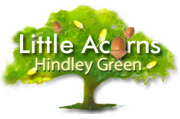 Little Acorns nursery & pre-school is in Hindley Green and offers babies and children under five a wonderful start in life as well as a great early years education. This includes funded places using the schemes above, subject to eligibility, of course. Our childcare setting is also very near Wigan, Bickershaw, Leigh, Atherton, Westhoughton, Ince-in-Makerfield, Platt Bridge, Tyldesley, Bolton and Greater Manchester, so may be convenient if you live or work in any of those nearby locations. Come for a guided tour with your little one, take a good look at our outstanding facilities and ask any questions that you may have. We’re here to help and would also be more than happy to talk you through the many childcare funding schemes that the nursery/pre-school supports.
Little Acorns nursery & pre-school is in Hindley Green and offers babies and children under five a wonderful start in life as well as a great early years education. This includes funded places using the schemes above, subject to eligibility, of course. Our childcare setting is also very near Wigan, Bickershaw, Leigh, Atherton, Westhoughton, Ince-in-Makerfield, Platt Bridge, Tyldesley, Bolton and Greater Manchester, so may be convenient if you live or work in any of those nearby locations. Come for a guided tour with your little one, take a good look at our outstanding facilities and ask any questions that you may have. We’re here to help and would also be more than happy to talk you through the many childcare funding schemes that the nursery/pre-school supports.
* Similar schemes are available in Scotland, Wales and Northern Ireland.

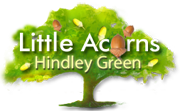
 Little Acorns is a very good nursery & preschool, located in Hindley Green. That’s also close to Wigan, Bickershaw, Leigh, Atherton, Westhoughton, Ince-in-Makerfield, Platt Bridge, Tyldesley, Bolton and Greater Manchester. So, if you have a child under five and live near any of those locations, do consider Little Acorns for your weekday childcare. We’re rated by Ofsted as a ‘Good Provider’ of childcare and early years education and also support various free Government childcare funding schemes for eligible families. Most importantly, though, we give babies, toddlers and preschoolers the very best start in life by bringing out the best in each one. If you’d like your child to absolutely thrive and live in the Wigan area, please get in touch:
Little Acorns is a very good nursery & preschool, located in Hindley Green. That’s also close to Wigan, Bickershaw, Leigh, Atherton, Westhoughton, Ince-in-Makerfield, Platt Bridge, Tyldesley, Bolton and Greater Manchester. So, if you have a child under five and live near any of those locations, do consider Little Acorns for your weekday childcare. We’re rated by Ofsted as a ‘Good Provider’ of childcare and early years education and also support various free Government childcare funding schemes for eligible families. Most importantly, though, we give babies, toddlers and preschoolers the very best start in life by bringing out the best in each one. If you’d like your child to absolutely thrive and live in the Wigan area, please get in touch: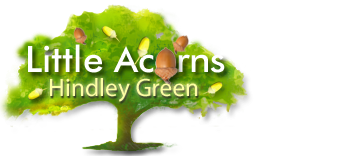

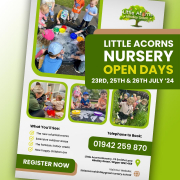
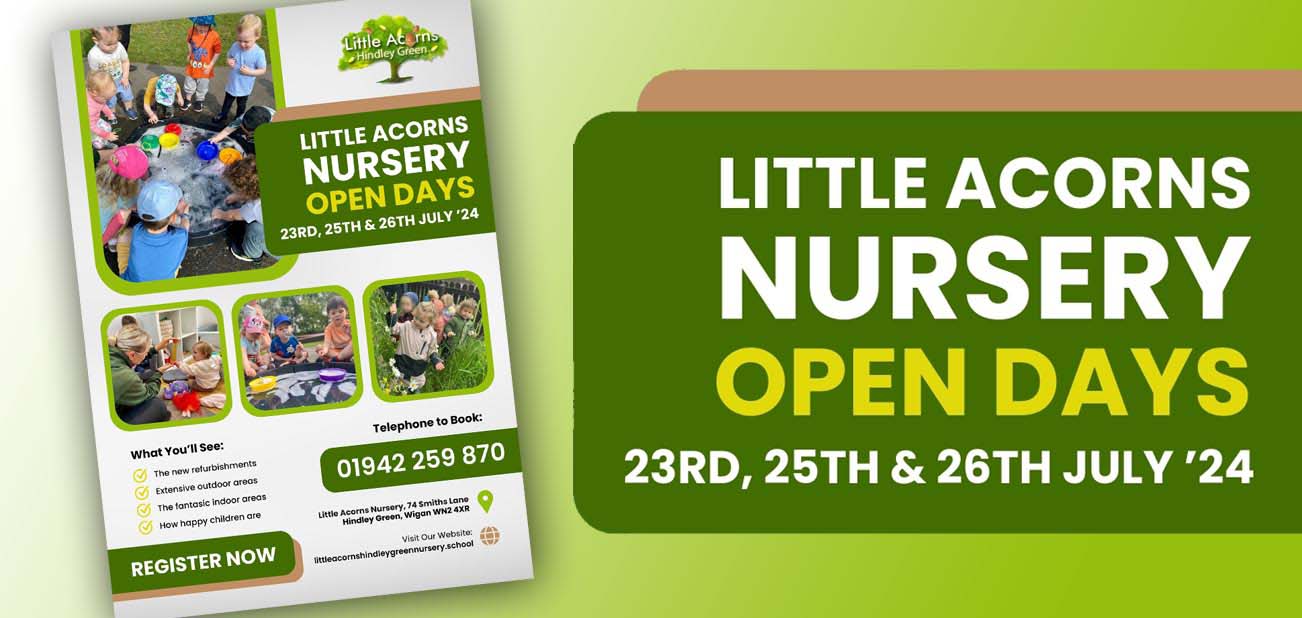
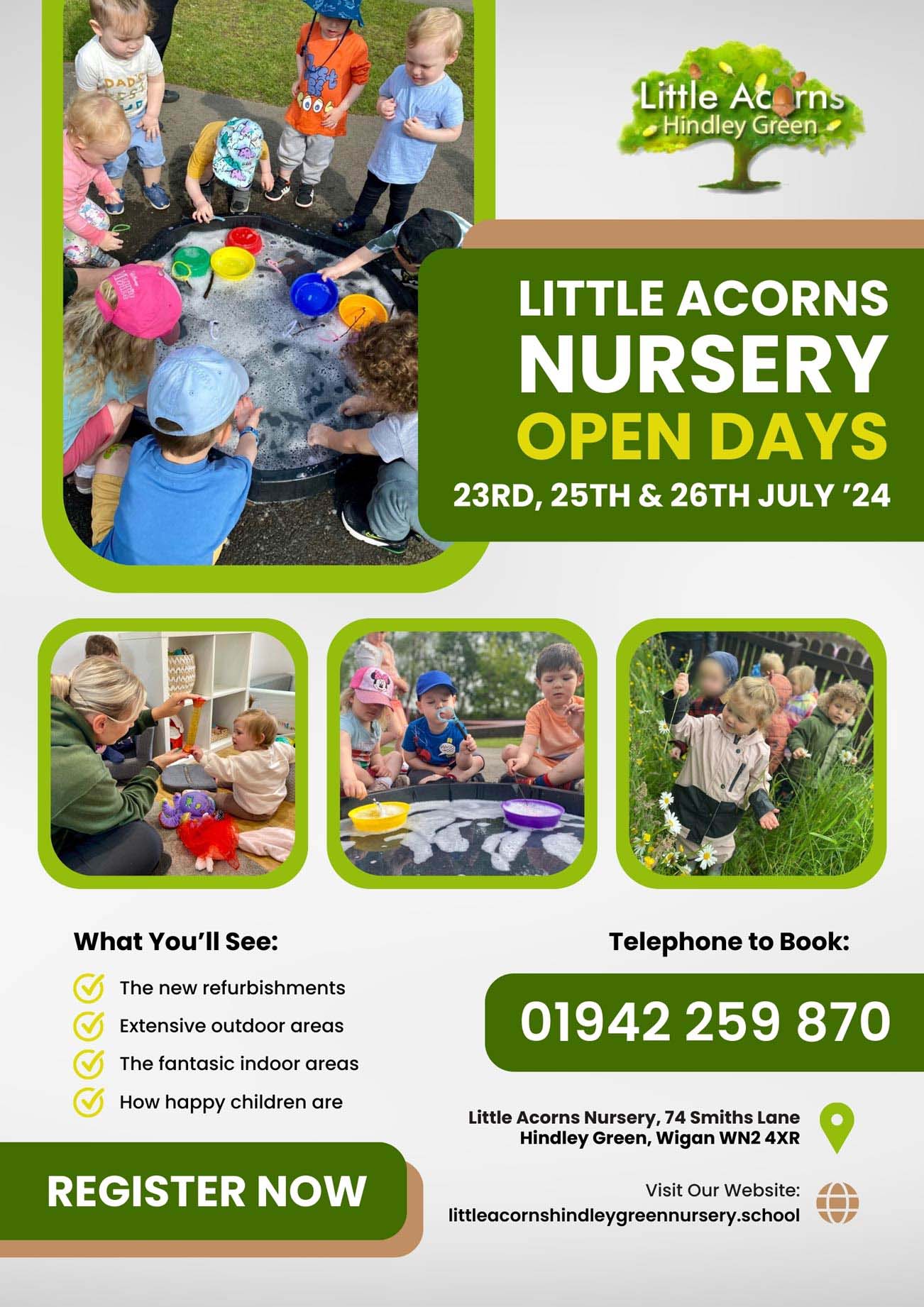
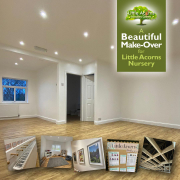
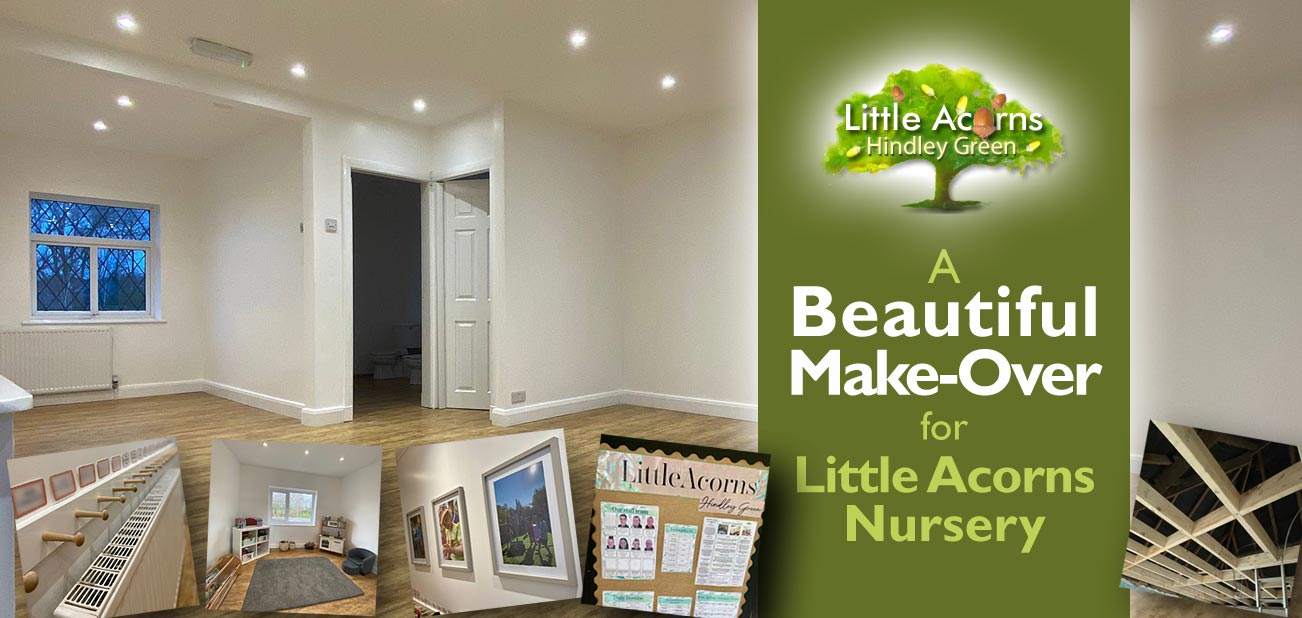

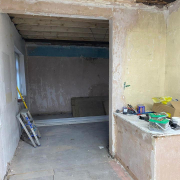



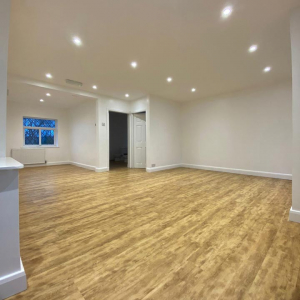
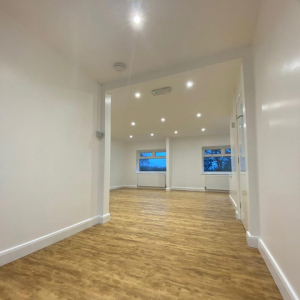
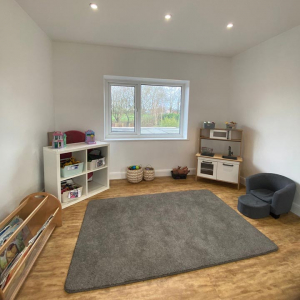
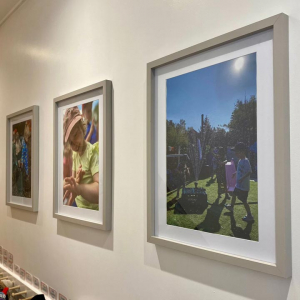
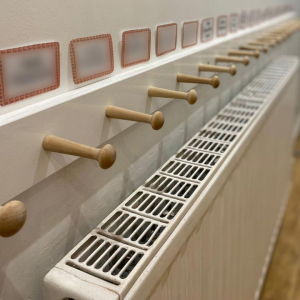
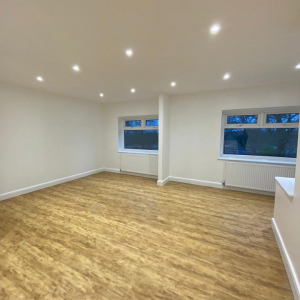


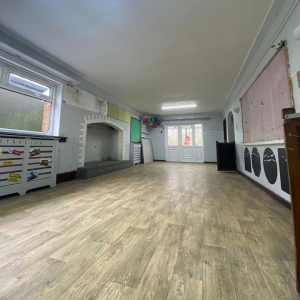
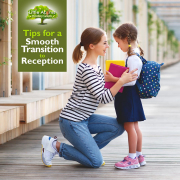
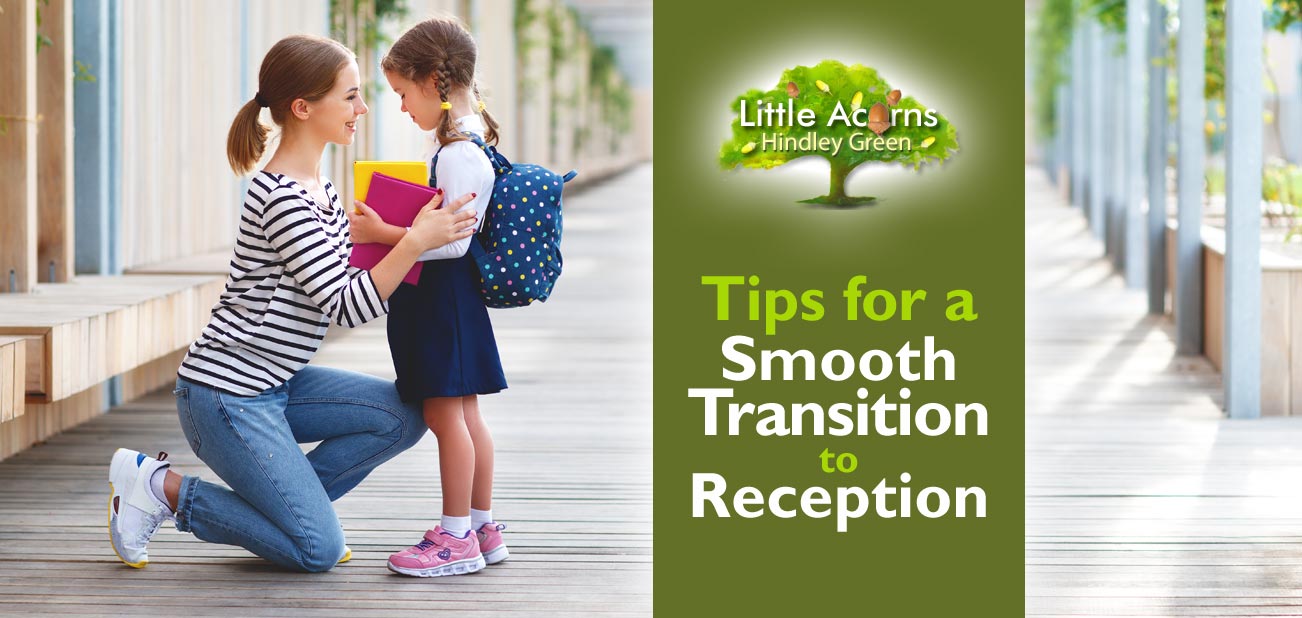
 The transition from preschool to Reception marks a significant milestone in any child’s life. It can be emotional for parents and, for children, it can be a period filled with excitement, curiosity, and perhaps a bit of apprehension. Ensuring a smooth transition involves a combination of careful planning, practical strategies and emotional support. With that in mind, today’s guide outlines more than twenty simple, actionable ways to ensure your child has a seamless transition and a positive start to school life.
The transition from preschool to Reception marks a significant milestone in any child’s life. It can be emotional for parents and, for children, it can be a period filled with excitement, curiosity, and perhaps a bit of apprehension. Ensuring a smooth transition involves a combination of careful planning, practical strategies and emotional support. With that in mind, today’s guide outlines more than twenty simple, actionable ways to ensure your child has a seamless transition and a positive start to school life. Use positive reinforcement to create a positive association with the idea of school. For example, highlight the exciting aspects of learning, making friends, playing new games, and discovering new things.
Use positive reinforcement to create a positive association with the idea of school. For example, highlight the exciting aspects of learning, making friends, playing new games, and discovering new things. Organise play dates with future classmates to build social connections before the first day. Encourage interactions with other children to develop essential social skills. Attending a nursery, preschool, or playgroup will provide excellent opportunities for this.
Organise play dates with future classmates to build social connections before the first day. Encourage interactions with other children to develop essential social skills. Attending a nursery, preschool, or playgroup will provide excellent opportunities for this.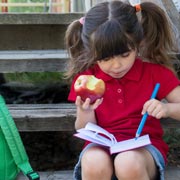 Foster self-reliance by allowing your child to perform simple tasks like dressing themselves, tidying up, using the toilet, and organising themselves. Also, assign small responsibilities to them at home to instil a sense of accountability and responsibility. Such skills will serve them well once at school.
Foster self-reliance by allowing your child to perform simple tasks like dressing themselves, tidying up, using the toilet, and organising themselves. Also, assign small responsibilities to them at home to instil a sense of accountability and responsibility. Such skills will serve them well once at school.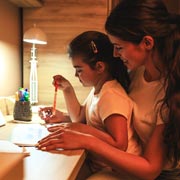 Read age-appropriate books together, particularly those that introduce topics they’ll be introduced to in Reception class. This not only sparks excitement and teaches them new things but also helps children understand what to expect. Instil a love for reading through interactive reading sessions. Visit the library too and explore a variety of books.
Read age-appropriate books together, particularly those that introduce topics they’ll be introduced to in Reception class. This not only sparks excitement and teaches them new things but also helps children understand what to expect. Instil a love for reading through interactive reading sessions. Visit the library too and explore a variety of books. Ensure that your child understands basic time concepts, such as morning, afternoon, and evening. This, in tandem with our next tip below, will help your child better understand the structure of the school day.
Ensure that your child understands basic time concepts, such as morning, afternoon, and evening. This, in tandem with our next tip below, will help your child better understand the structure of the school day. Ensure your child can manage basic self-care tasks independently. Such skills will be invaluable to them once they have started school.
Ensure your child can manage basic self-care tasks independently. Such skills will be invaluable to them once they have started school. Ensure sufficient sleep by establishing a calming bedtime routine. This not only gets them used to a pattern but will also help them to maintain focus and energy levels once at school.
Ensure sufficient sleep by establishing a calming bedtime routine. This not only gets them used to a pattern but will also help them to maintain focus and energy levels once at school. The journey from preschool to the first day of school is a significant milestone for both parent and child. Preparing children for school involves a holistic approach that addresses emotional, social, and practical aspects. By incorporating these strategies into your family’s daily routine, you can contribute to a positive and confident transition for your child and set the stage for the most successful start to their school journey.
The journey from preschool to the first day of school is a significant milestone for both parent and child. Preparing children for school involves a holistic approach that addresses emotional, social, and practical aspects. By incorporating these strategies into your family’s daily routine, you can contribute to a positive and confident transition for your child and set the stage for the most successful start to their school journey.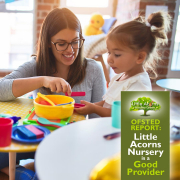
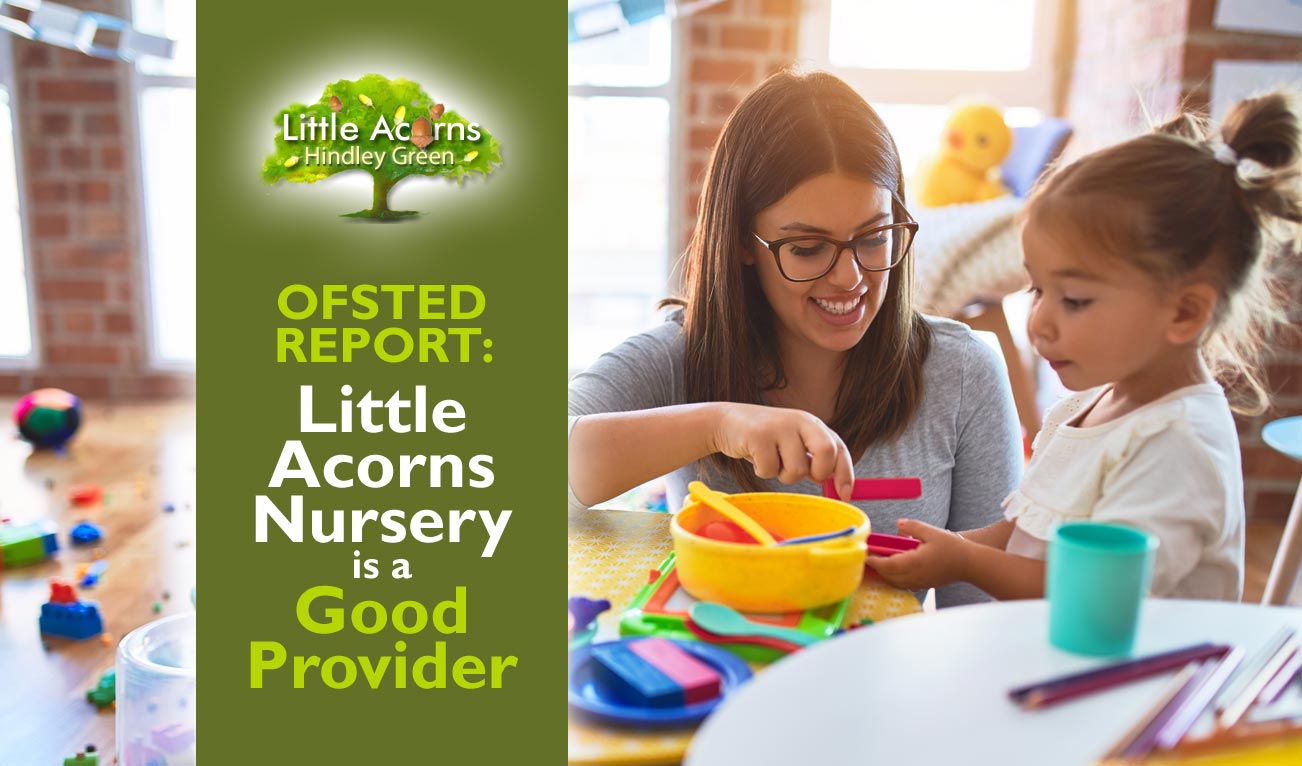
 We’re delighted to announce that Little Acorns Nursery, Hindley Green, has passed its first Ofsted Inspection — and with flying colours! The Ofsted Report was published recently following the Ofsted inspection in late April this year. It is our first since we took over the nursery from Kate’s Kindergarten in 2022. So, it’s now official — Little Acorns Nursery is a ‘Good Provider’ of childcare and early-years education. Let’s take a look at the Inspector’s findings and some of her lovely comments. We’ll see why the nursery/preschool achieved such consistent, positive feedback and good ratings in every area. Doing so is incredibly important to the children under our care and, of course, to their parents and caregivers.
We’re delighted to announce that Little Acorns Nursery, Hindley Green, has passed its first Ofsted Inspection — and with flying colours! The Ofsted Report was published recently following the Ofsted inspection in late April this year. It is our first since we took over the nursery from Kate’s Kindergarten in 2022. So, it’s now official — Little Acorns Nursery is a ‘Good Provider’ of childcare and early-years education. Let’s take a look at the Inspector’s findings and some of her lovely comments. We’ll see why the nursery/preschool achieved such consistent, positive feedback and good ratings in every area. Doing so is incredibly important to the children under our care and, of course, to their parents and caregivers.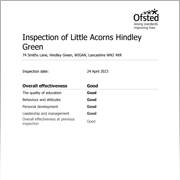
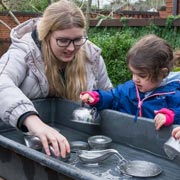 Opening comments in the Ofsted Report are particularly positive. Not only are the findings welcomed by nursery staff, who work so hard and so professionally — as evidenced in the report — but they’ll also be welcomed by parents/caregivers of children attending the setting. After all, it’s good to know children are in good hands and that their choice of childcare provider was a good one.
Opening comments in the Ofsted Report are particularly positive. Not only are the findings welcomed by nursery staff, who work so hard and so professionally — as evidenced in the report — but they’ll also be welcomed by parents/caregivers of children attending the setting. After all, it’s good to know children are in good hands and that their choice of childcare provider was a good one.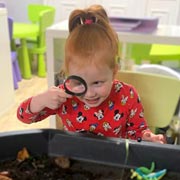 As you can see from the comment above, staff are methodical and strategic in their approach to activities organised for the children. Activities are tailored to each child’s individual interests, making playing, development of skills and learning of new knowledge all come naturally.
As you can see from the comment above, staff are methodical and strategic in their approach to activities organised for the children. Activities are tailored to each child’s individual interests, making playing, development of skills and learning of new knowledge all come naturally.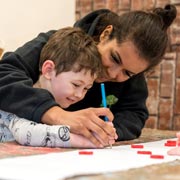 Ofsted also recognised that leaders and staff plan improvements for the future. In their report, they describe how leaders “plan how they can make the quality of education even better […] working closely with staff to design building improvements that will have the most benefit for the children”.
Ofsted also recognised that leaders and staff plan improvements for the future. In their report, they describe how leaders “plan how they can make the quality of education even better […] working closely with staff to design building improvements that will have the most benefit for the children”.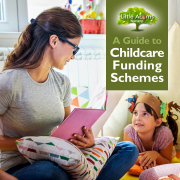

 There are lots of free or assisted funding schemes for childcare and these are especially useful to parents looking to keep childcare costs down. With increased inflation and the cost of living crisis in Britain, such schemes have probably never been more welcome. Today we’ll take a condensed look at the main childcare funding options available to parents, particularly those of children under five, although many schemes also help children substantially older.
There are lots of free or assisted funding schemes for childcare and these are especially useful to parents looking to keep childcare costs down. With increased inflation and the cost of living crisis in Britain, such schemes have probably never been more welcome. Today we’ll take a condensed look at the main childcare funding options available to parents, particularly those of children under five, although many schemes also help children substantially older. Although the Childcare Vouchers Scheme closed to new applicants on 4th October 2018, childcare vouchers are still available to those who enrolled before the deadline, so long as they continue to meet eligibility requirements. For those that do, childcare vouchers help to cut the cost of childcare for children aged up to 15, or 16 if they are disabled.
Although the Childcare Vouchers Scheme closed to new applicants on 4th October 2018, childcare vouchers are still available to those who enrolled before the deadline, so long as they continue to meet eligibility requirements. For those that do, childcare vouchers help to cut the cost of childcare for children aged up to 15, or 16 if they are disabled. Tax-Free Childcare is a great, UK-wide, scheme that many working families will be eligible for, even including relatively high earners. What’s more, it could save them as much as £2,000 in childcare fees each year, per child, rising to £4,000 if their child has a disability.
Tax-Free Childcare is a great, UK-wide, scheme that many working families will be eligible for, even including relatively high earners. What’s more, it could save them as much as £2,000 in childcare fees each year, per child, rising to £4,000 if their child has a disability. Certain children aged 2 in England* are eligible for 570 hours of totally free childcare per year. This is a great opportunity for them to begin their early years education relatively young and indeed the age of 2 is a crucial age to do so, according to studies. The substantial free funding is usually taken as 15 hours of free childcare over 38 weeks of the year, although some childcare settings allow it to be spread out in a different way. Not all 2-year-olds are eligible, however, and basically it comes down to the fact that the parent(s) must be in receipt of Government benefits of some kind. Other 2-year-olds are eligible for additional reasons, for example because they are looked after by the local authority or are subject to an Education, Health and Care (ECH) Plan. Even some non-UK citizens who do not claim benefits have eligible 2-year-olds although, as with all these scenarios, various rules around eligibility apply.
Certain children aged 2 in England* are eligible for 570 hours of totally free childcare per year. This is a great opportunity for them to begin their early years education relatively young and indeed the age of 2 is a crucial age to do so, according to studies. The substantial free funding is usually taken as 15 hours of free childcare over 38 weeks of the year, although some childcare settings allow it to be spread out in a different way. Not all 2-year-olds are eligible, however, and basically it comes down to the fact that the parent(s) must be in receipt of Government benefits of some kind. Other 2-year-olds are eligible for additional reasons, for example because they are looked after by the local authority or are subject to an Education, Health and Care (ECH) Plan. Even some non-UK citizens who do not claim benefits have eligible 2-year-olds although, as with all these scenarios, various rules around eligibility apply. In contrast to the above, 15 hours of free funding is available for all families in England* with a child aged 3 to 4 requiring childcare. As with the above, the children can get 570 hours of free childcare per year except this time only while they’re 3 or 4. This is again usually spread out as 15 hours per week over the course of 38 weeks, however some childcare providers will allow a different pattern. It really is a no-brainer and is a great way to get children into early years education and perhaps parents back into the workplace. Children are eligible to start from the term following their 3rd birthday until they start in Reception Year at school, or reach ‘compulsory school age’ if that’s later.
In contrast to the above, 15 hours of free funding is available for all families in England* with a child aged 3 to 4 requiring childcare. As with the above, the children can get 570 hours of free childcare per year except this time only while they’re 3 or 4. This is again usually spread out as 15 hours per week over the course of 38 weeks, however some childcare providers will allow a different pattern. It really is a no-brainer and is a great way to get children into early years education and perhaps parents back into the workplace. Children are eligible to start from the term following their 3rd birthday until they start in Reception Year at school, or reach ‘compulsory school age’ if that’s later. The “30 Hours” childcare scheme for 3 and 4-year-olds is a little harder to obtain because families are not eligible where one partner earns £100k or more. Additionally, the parent and their partner, if they have one, must usually expect to earn at least £152 per week, on average, in order to qualify, although the figures are lower for parents younger than 23. You may still qualify for the free childcare funding if you are on maternity leave, paternity leave, shared leave, adoption leave, or are a carer. Rules apply. As with the Tax-Free Childcare scheme, you have to ensure your details are kept up-to-date every quarter in order to check that you’re still eligible. Your child must usually live with you too, in order to qualify. However, as with all these things, there are some exceptions to the core rules.
The “30 Hours” childcare scheme for 3 and 4-year-olds is a little harder to obtain because families are not eligible where one partner earns £100k or more. Additionally, the parent and their partner, if they have one, must usually expect to earn at least £152 per week, on average, in order to qualify, although the figures are lower for parents younger than 23. You may still qualify for the free childcare funding if you are on maternity leave, paternity leave, shared leave, adoption leave, or are a carer. Rules apply. As with the Tax-Free Childcare scheme, you have to ensure your details are kept up-to-date every quarter in order to check that you’re still eligible. Your child must usually live with you too, in order to qualify. However, as with all these things, there are some exceptions to the core rules. If you are a student as well as being a parent, you may be eligible for some childcare support through a variety of funding schemes.
If you are a student as well as being a parent, you may be eligible for some childcare support through a variety of funding schemes. If you and your partner, if you have one, claim Universal Credit, are working and have a child under the age of 17, you may be able to claim back as much as 85% of your childcare costs if eligible. In order to claim, various rules apply and there are even some exceptions to the above. For example, those not working through ill health or disability may still be eligible in some circumstances. You must not, however, be claiming Tax-Free Childcare nor Tax Credits in order to receive childcare funding through Universal Credit.
If you and your partner, if you have one, claim Universal Credit, are working and have a child under the age of 17, you may be able to claim back as much as 85% of your childcare costs if eligible. In order to claim, various rules apply and there are even some exceptions to the above. For example, those not working through ill health or disability may still be eligible in some circumstances. You must not, however, be claiming Tax-Free Childcare nor Tax Credits in order to receive childcare funding through Universal Credit. Childcare funding through Universal Credit has replaced the Tax Credits system, which closed to new applicants in February 2019. If you are not an existing Tax Credits customer, you will therefore need to claim under the Universal Credit scheme instead. However, for existing families who can still claim Tax Credits, they are able to claim as much as 70% of eligible childcare costs for a child under 16 (17 if disabled) up to a maximum of £122.50 per week for one child or £210 per week for more than one.
Childcare funding through Universal Credit has replaced the Tax Credits system, which closed to new applicants in February 2019. If you are not an existing Tax Credits customer, you will therefore need to claim under the Universal Credit scheme instead. However, for existing families who can still claim Tax Credits, they are able to claim as much as 70% of eligible childcare costs for a child under 16 (17 if disabled) up to a maximum of £122.50 per week for one child or £210 per week for more than one.
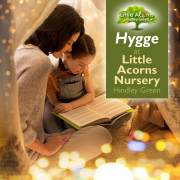
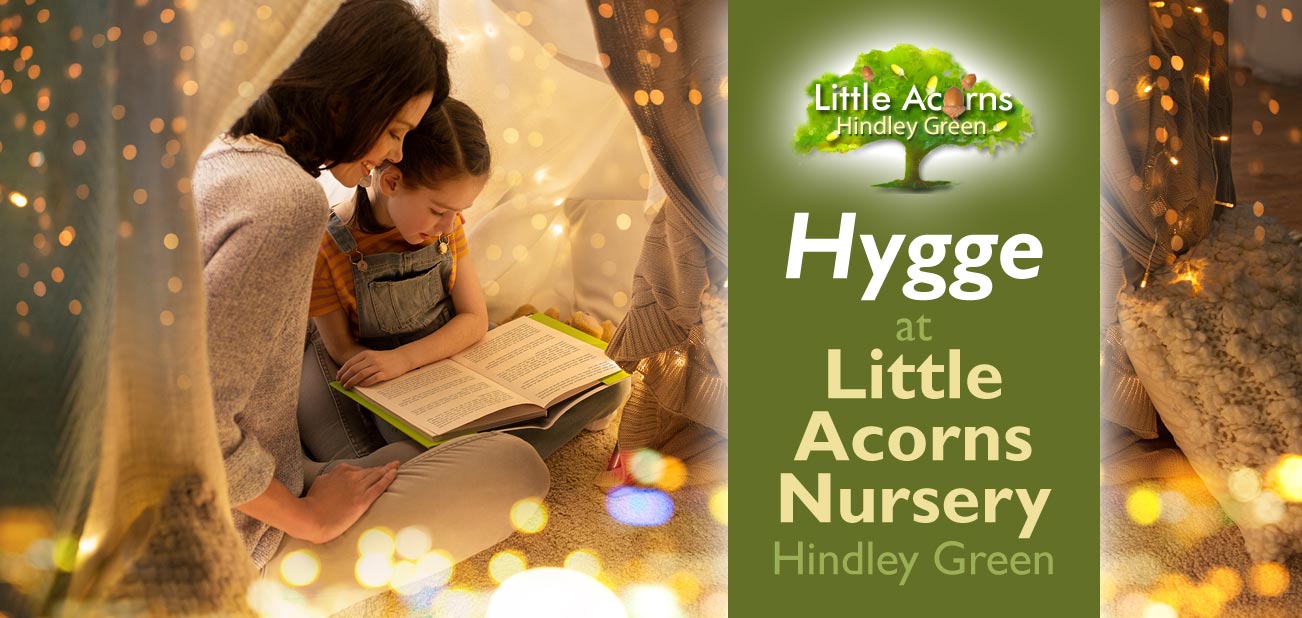
 At Little Acorns Nursery in Hindley Green, we’re embracing Hygge (pronounced “Hue-gah”), which is becoming very popular around the globe. But what is Hygge and why are we embracing it? This article explains everything and you’ll soon see why Hygge is a very good thing for everyone at the nursery, including both children and staff. Take a look …
At Little Acorns Nursery in Hindley Green, we’re embracing Hygge (pronounced “Hue-gah”), which is becoming very popular around the globe. But what is Hygge and why are we embracing it? This article explains everything and you’ll soon see why Hygge is a very good thing for everyone at the nursery, including both children and staff. Take a look … Hygge has been described as resulting in “comfortable conviviality” i.e. friendliness and warmth that makes everyone feel welcome and happy. It’s also been described as “the pursuit of everyday happiness … basically like a hug, just without the physical touch.”
Hygge has been described as resulting in “comfortable conviviality” i.e. friendliness and warmth that makes everyone feel welcome and happy. It’s also been described as “the pursuit of everyday happiness … basically like a hug, just without the physical touch.”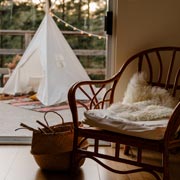 There will be twinkly ‘mood’ lighting instead of harsh fluorescent lighting. Rooms will have real plants that bring nature indoors, natural materials and objects like wood, wicker, pine cones and pebbles. There will be calming music and perhaps even scent in the air. There will be cosy corners, dens and even teepees where children can ‘nest’ while they read, play or converse. Hygge gives a room a lovely atmosphere, often with flickering candles (or, at the nursery, the warm-coloured LED equivalents, for safety purposes).
There will be twinkly ‘mood’ lighting instead of harsh fluorescent lighting. Rooms will have real plants that bring nature indoors, natural materials and objects like wood, wicker, pine cones and pebbles. There will be calming music and perhaps even scent in the air. There will be cosy corners, dens and even teepees where children can ‘nest’ while they read, play or converse. Hygge gives a room a lovely atmosphere, often with flickering candles (or, at the nursery, the warm-coloured LED equivalents, for safety purposes). Embracing all these aspects of Hygge will make children feel really at home, safe, relaxed, cosy and content. Their day will feel fulfilling and enriched. It will be calm and peaceful whilst also embracing nature both outside and indoors. Friendships will deepen as small groups of children play, converse, read or simply ‘be’ in the many cosy nooks and dens available to them. They are also free to have some solo time where they can explore a particular interest, relax with a book or engage in an activity in a calm and comfortable corner. Whatever they’re doing, children will enjoy and benefit from the mood lighting, calming surroundings, relaxing music and suchlike.
Embracing all these aspects of Hygge will make children feel really at home, safe, relaxed, cosy and content. Their day will feel fulfilling and enriched. It will be calm and peaceful whilst also embracing nature both outside and indoors. Friendships will deepen as small groups of children play, converse, read or simply ‘be’ in the many cosy nooks and dens available to them. They are also free to have some solo time where they can explore a particular interest, relax with a book or engage in an activity in a calm and comfortable corner. Whatever they’re doing, children will enjoy and benefit from the mood lighting, calming surroundings, relaxing music and suchlike. Hygge is like a warm cloak that softly embraces every child, allowing him or her to quietly blossom, learn and develop in the most homely and relaxed of atmospheres. With Hygge, they can embrace and naturally absorb everything that’s so good about the Hygge lifestyle, including it’s almost magical effects that will bring out the wonder in every child. Hygge instinctively appeals to a child’s very heart and soul, allowing their learning and development to blossom and thrive in the most natural of ways.
Hygge is like a warm cloak that softly embraces every child, allowing him or her to quietly blossom, learn and develop in the most homely and relaxed of atmospheres. With Hygge, they can embrace and naturally absorb everything that’s so good about the Hygge lifestyle, including it’s almost magical effects that will bring out the wonder in every child. Hygge instinctively appeals to a child’s very heart and soul, allowing their learning and development to blossom and thrive in the most natural of ways.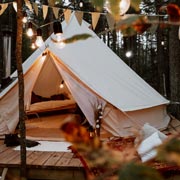 gives babies, toddlers and preschoolers the very best start in life and in their early years education. If you are looking for
gives babies, toddlers and preschoolers the very best start in life and in their early years education. If you are looking for